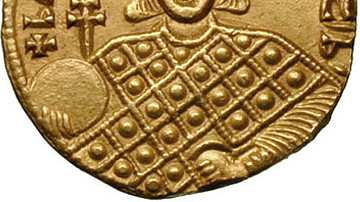Search
Search Results

Definition
Edward the Elder
Edward the Elder (r. 899-924) was the son of Alfred the Great (r. 871-899) and the King of the Anglo-Saxons in the early 10th century. He is known for his military victories over the Vikings of East Anglia and the East Midlands and for consolidating...

Definition
Henry I of England
Henry I reigned as the king of England from 1100 to 1135 CE. The son of William the Conqueror (r. 1066-1087 CE), Henry succeeded his brother William II of England (r. 1087-1100 CE) after he had died in a hunting accident and left no heir...

Definition
Bohemian Reformation
The Bohemian Reformation (c. 1380 to c. 1436) was the first concerted effort by Catholic clergy to reform the abuses and corruption of the medieval Church. Bohemian clerics and theologians called for reform and, like later advocates, initially...

Definition
Pilgrimage of Grace
The Pilgrimage of Grace is the collective name for a series of rebellions in northern England, first in Lincolnshire and then in Yorkshire and elsewhere between October and December 1536 CE. Nobles, clergy, monks, and commoners united to...

Definition
Philip Melanchthon
Philip Melanchthon (l. 1497-1560) was a German scholar and theologian who provided the intellectual rationale and systematized theology for the reformed vision of Christianity of his friend Martin Luther (l. 1483-1546). He was always overshadowed...

Definition
Joan I of Navarre - Queen Consort of France
Joan I of Navarre (1273-1305) served as queen of Navarre and countess of Champagne and Brie between 1274 and 1305. In 1285, she also became queen consort of France following her marriage to Philip IV of France (reign 1285-1314). Between 1289...

Definition
Basil I
Basil I was emperor of the Byzantine Empire from 867 to 886 CE and he founded the "Macedonian" dynasty which lasted for over 200 years. Basil was an Armenian from a humble background who had risen to become the second most powerful man in...

Definition
Alexander I of Scotland
Alexander I of Scotland reigned from 1107 to 1124 CE. Alexander continued the reorganisation of the Scottish Church, taking the Roman Catholic Church organisation as a model, and he famously founded the priory at Scone, site of the acclamation...

Definition
David II of Scotland
David II of Scotland ruled as king from 1329 to 1371 CE. Succeeding his father Robert the Bruce (r. 1306-1329 CE) when still a child, his early reign was threatened by the pretender Edward Balliol (c. 1283-1364 CE), son of King John Balliol...

Article
Twelve Famous Women of the Middle Ages
Women in the Middle Ages were frequently characterized as second-class citizens by the Church and the patriarchal aristocracy. Women's status was somewhat elevated in the High and Late Middle Ages by the cult of the Virgin Mary and courtly...